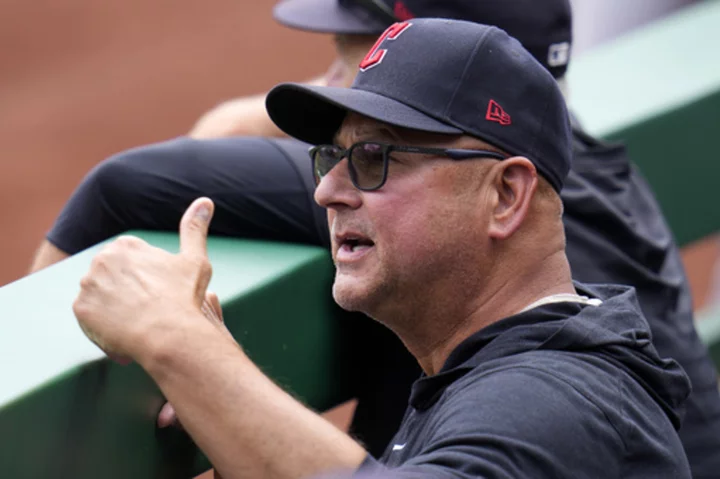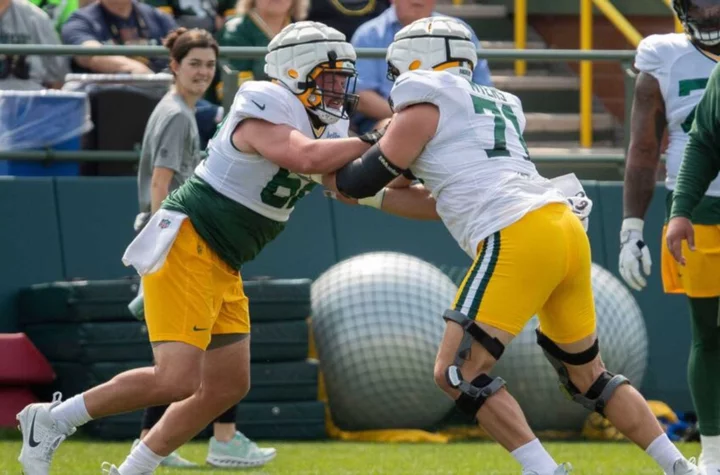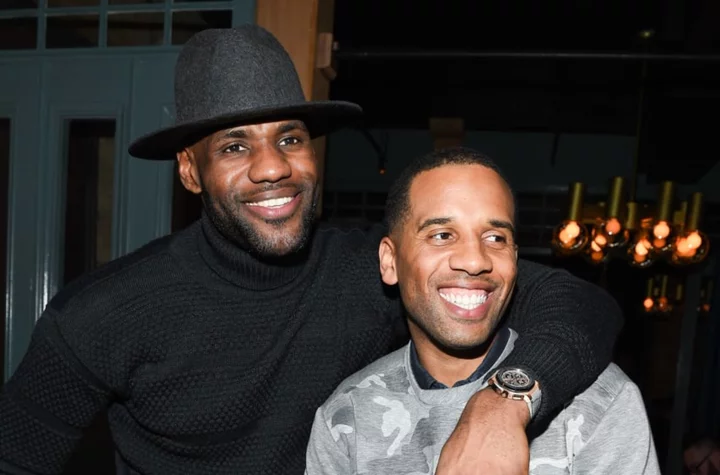OAKLAND, Calif. (AP) — The only time Mark Kotsay ever faced being demoted or released as a player, Terry Francona delivered the tough news.
And he did so with such grace and care, Kotsay remembers to this day how that thoughtful tone made it a little easier to accept in the moment. Those are lessons he now uses himself as manager of the Oakland Athletics.
“Terry Francona, his communication skills are off the charts," said Tampa Bay skipper Kevin Cash, who played for Francona in Boston and served as a coach on his staff in Cleveland. "I think that’s why he’s been in the game and been successful for so long."
Rangers manager Bruce Bochy has long abided by a simple message when it comes to his players: “I try to treat players the way I would want to be treated.”
So, when it comes to tough conversations, most every manager agrees that being truthful and straight forward is always the best approach.
All these years later, Kotsay still recalls when Francona told him in 2009 that he had been designated for assignment by the Red Sox as a role player at age 33. Kotsay, in his second season as Oakland's manager, tries to use that same empathetic approach when he has a difficult conversation with a player.
“My first spring training, Jim Leyland called me in and told me I wasn’t going to make the team, but from that day forward, I had never gotten a message up until Terry that I was being released and didn’t have a job in baseball,” Kotsay said. “I was never sent down from the major leagues to the minors, so I can’t put myself in those shoes. But I’ve tried to talk to enough guys that have had that experience.”
There’s no standard message from Francona — who has hinted this may be his final season in the dugout — when he has those chats with the Guardians. In fact, Francona often lets the player’s reaction dictate how it goes from there. When someone is visibly upset, he might offer the option of talking again in 24 hours, once the information has settled in a bit.
Seattle Mariners manager Scott Servais also does that, trying his best to read each situation.
“Sometimes they don’t hear anything after you tell them they’re getting sent down,” Francona said. "Sometimes they don’t hear anything else, so we always kind of check with them like, ‘Hey, do you want to talk more now, do you want to come back later, do you want to come in tomorrow?’ Because we want to help, but sometimes, they’re just not ready to listen.”
Athletes have changed. Times have changed, too.
Largely gone are the days of players walking into the clubhouse the afternoon of a game and checking the posted lineup to see if they're in it.
Brandon Hyde, Baltimore’s fifth-year manager, makes a point to tell his Orioles a day before if they will be getting a break, whether for rest or simply to give someone else needed at-bats. He understands how much today's athletes count on regular communication in order to plan their routines.
“You want them to appreciate that we’re trying to put them in the best position to have success,” Hyde said. “Players today appreciate as much communication as possible. ... I think as you evolve, you want good communication between the coaches and the players.”
Such thoughtfulness matters greatly to players, even if sometimes the information can be hard to hear.
“I think most people can handle being honest with them,” Astros manager Dusty Baker said.
Veteran San Francisco Giants shortstop Brandon Crawford recalls how Bochy was always truthful regardless of the situation. He also stuck by Crawford through his early struggles, writing him into the lineup day after day.
“There wasn’t a lot of beating around the bush with Boch, he would kind of just tell you like it is,” Crawford said. “Maybe this is why, but he had a lot of trust in his players, his guys that he believed in. He’d keep putting them back out there. I’m talking about myself a lot here. I was going through struggles, maybe some tough stretches and he would continue to put me back out there because he believed that you would come through in the big situations, and fortunately it worked out.”
Bochy guided the Giants to World Series titles in 2010, ‘12 and ’14.
“If that comes across that I cared about them, then that's good for me. If I could do anything to help them, that was my job I felt like,” Bochy said. “I didn't always get it right, but I did care about them and wanted them to do well. I was always for them. Sometimes the players might not think that, but trust me, that's the case. We're in it together.”
Servais strives to evaluate each situation as it presents itself and take into account each player individually — “so read the facial expressions and read the body language, all those things are really important because you can’t script it out, you really can’t.”
“It’s handling people,” he said. "And I don’t care if you’re managing a baseball team or running a company, it’s the same type of thing, you’ve got to understand before you go into those meetings or into those discussions, and also have the ability to adjust on the fly.
"You may go into a meeting saying, ‘Hey, I’m going to hit this guy with this,’ and all of a sudden you get in there and ‘Whoa, this player isn’t ready for that.'"
Francona expects young players going through a demotion for the first time to be polite, yet he understands there is typically some anger or sadness that comes with it.
“I think there’s a way to be respectful. Our guys always handle themselves. We acknowledge that while we’re telling them something, it’s a big deal, you’re upsetting a part of their life and it’s important to them so we respect that, we tell them that,” Francona said. “But we always tell them the truth, we just try to find a way that’s not just smack somebody in the face, I think there’s a way to do that.”
___
AP MLB: https://apnews.com/hub/mlb









